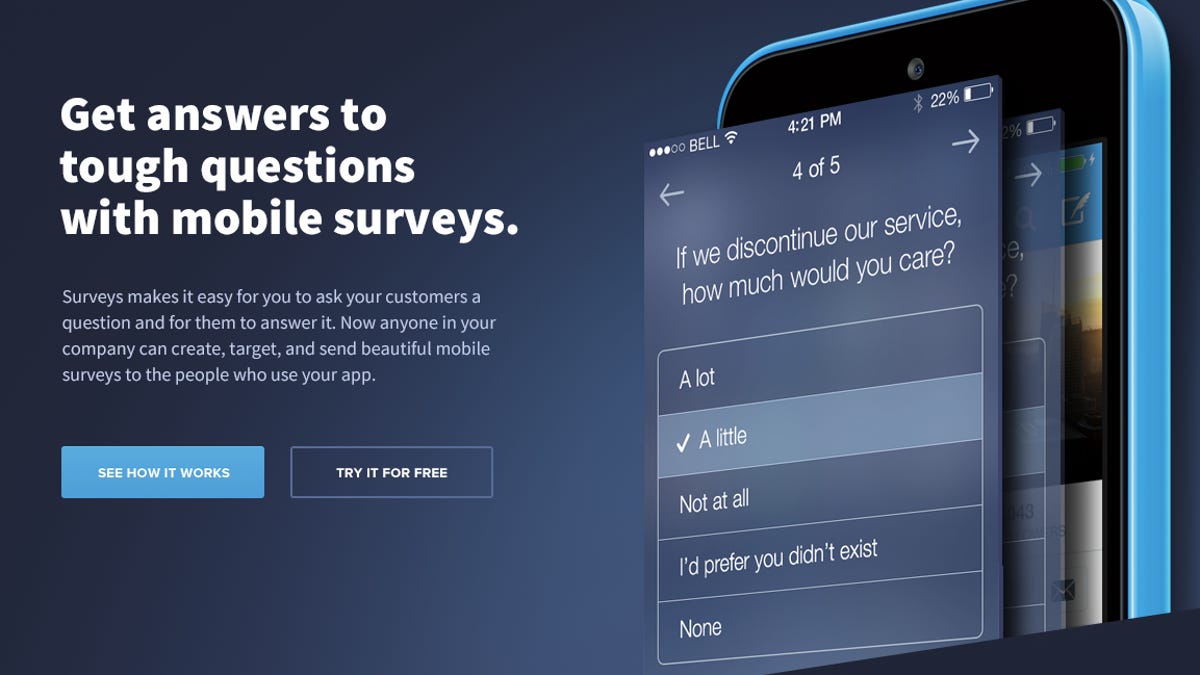Mixpanel wants to make surveys mobile savvy
The analytics company is intent on doing away with the age of the e-mail survey to make polling users for feedback more enjoyable all around.

An e-mail survey is not a pretty thing. For Mixpanel founder Suhail Doshi, it's downright insulting.
"It's a giant form," he explained. "There's 13 questions, text inputs, no great incentive." It's the standard way companies get user feedback at the moment, using services like SurveyMonkey. But Doshi is hoping Mixpanel's new tool, exclusively for mobile, will help developers see the light and seek out a more pleasant way of polling their users.
Bundled into its people analytics package -- a suite of tools Mixpanel offers at tiered pricing based on a developer's number of users -- Surveys is meant to be native. That means it doesn't take you from an e-mail message over to Safari to a mobile Web form on your smartphone.
Instead, it pops up immediately within an app, and is designed in such a way as to not only look as if it were customized specifically by the developer, but also with a user interface that facilitates completion.
"It's just as much effort to answer as it is to exit, so you might as well as answer," Doshi said. And by keeping the question count low -- say three instead of 13 -- users are more inclined to proceed instead of immediately look for a way out. Mixpanel wants developers to begin catering to how users have historically perceived such constant prodding on the Web, all in the hopes that it can make gathering information about how to improve an app a more natural and readily accepted part of mobile.
"Mixpanel has been able to measure the object, but now we can measure how people think and feel about something," Doshi said. "You just ask."
The surveys also can be tailored easily from within a developer's Mixpanel account and targeted to specific locations and times of day. While the current version is only available for iPhone, the company is expanding to iPad and Android in the near future.
While Mixpanel's offering is certainly catering to smart design and a more elevated understanding of user behavior, it's unclear whether or not big players in what is -- if you can believe it -- a multibillion-dollar market will take note, or consider mobile a threat for that matter.
"It's really easy for big companies to ignore growing markets when it's not quite obvious that it will move the needle," Doshi said. "It's a new thing. We understand mobile really well." So for Doshi and Mixpanel, mobile surveys "is a blindsight."

